Opportunité ou menace?
L’arrivée récente d’applications dites “génératives” comme ChatGPT a révélé, à la fois, la maturité de la technologie IA qui lui permet de se déployer dans le secteur grand public, et aussi une propension du public à l’intégrer dans ses usages, y compris dans la création.
L’intelligence artificielle (IA)
By Cedric Privat
This article is published on: 16th March 2024

Elle est déjà utilisée dans de nombreux domaines, tels que la santé, la finance, la logistique et la production. Néanmoins les bouleversements induits par l’IA sont encore peu visibles.
L’intelligence artificielle suscite à la fois la crainte qu’elle ne remplace massivement des travailleurs humains mais aussi l’espoir d’amélioration des conditions de travail, voire de création de nouveaux métiers. Il est important de prendre conscience des opportunités et des menaces potentielles de l’IA afin de pouvoir l’utiliser de manière responsable et éthique.
Opportunités de l’IA
L’IA offre de nombreuses opportunités pour améliorer nos vies :
• Résoudre des problèmes complexes : l’IA est déjà utilisée pour développer de nouveaux médicaments, pour diagnostiquer des maladies et pour créer des systèmes de défense contre les cyberattaques.
• Améliorer l’efficacité : l’IA peut être utilisée pour automatiser des tâches répétitives ou laborieuses, libérant ainsi les humains pour se concentrer sur des tâches plus créatives et intellectuellement stimulantes.
• Créer de nouvelles opportunités économiques et sociales : Par exemple, développer de nouveaux produits et services, créer de nouveaux emplois et améliorer l’éducation.
Le Forum économique mondial estime d’ailleurs que, d’ici 2025, même si l’IA devrait remplacer quelques 85 millions d’emplois, elle en permettrait la création de 97 millions.
Notons que 60 % des emplois d’aujourd’hui n’existaient pas en 1940.

Menaces de l’IA
Selon une étude récente de l’Organisation Internationale du Travail (OIT), ce sont les emplois basés sur des compétences cognitives de base, tels que les emplois de bureau ou l’analyse de données, qui sont les plus exposés à l’arrivée de l’IA.
• Le chômage : l’IA est utilisée pour automatiser des tâches qui sont actuellement effectuées par des humains, comme la conduite de véhicules, la fabrication de produits et la prestation de services. La création d’emploi en parallèle est-elle assurée?
• L’inégalité : l’IA pourrait accroître les inégalités sociales, les personnes ayant accès à l’IA et aux compétences nécessaires pour l’utiliser étant limitées.
• Les risques éthiques : tels que la responsabilité des décisions prises par des systèmes d’IA, la protection de la vie privée et la prévention des discriminations.
• Puissance des GAFAM (géants du Web) : avec le rôle central qu’occupera l’IA dans de nombreux secteurs d’activité à l’avenir, les acteurs majeurs (Google, Amazon, IBM…) pourraient devenir incontournables et définir eux-mêmes les règles du jeu.
Compte tenu de la puissance de l’outil et de sa rapidité de développement, les pouvoirs publics se sont emparés de la question, notamment pour étudier les impacts dans les secteurs structurels (emploi, éducation, justice, sécurité, santé publique…).
Le rapport du Conseil d’État rédigé en 2022 plaide pour le développement de l’IA dans les services publics sous réserve du respect de sept príncipes :
• la primauté humaine ;
• la performance ;
• l’équité et la non-discrimination ;
• la transparence ;
• la sûreté (cybersécurité) ;
• la soutenabilité environnementale ;
• l’autonomie stratégique.
Le Parlement européen s’est prononcé le 14 juin 2023 en faveur du projet européen de régulation de l’intelligence artificielle.
Un équilibre semble donc possible entre l’adoption de l’IA pour améliorer l’efficacité et la productivité ainsi que la préservation des emplois. Le cadre devra néanmoins être structuré et des programmes de promotion, de formation, d’adaptation et de reconversion seront indispensables.
Le marché mondial de l’IA, qui a été évalué à 136,55 milliards USD en 2022, devrait connaître une croissance annuelle de 37,3 % entre 2023 et 2030. Les promesses de cette 4e révolution industrielle sont donc vertigineuses et les opportunités d’investissement sont nombreuses.
N’hésitez pas à nous contacter afin d’obtenir les réponses d’un professionnel aux questions que vous vous posez.
Sources: cabinet d’étude McKinsey, francenum.gouv.fr, Organisation Internationale du Travail
Memories are made of this
By David Hattersley
This article is published on: 12th March 2024

Thank you Deano, glass of wine in one hand and that mellow voice. Don’t worry this older, hopefully wiser Financial Adviser is a bit like that glass of wine, it mellows. Without a doubt, there have been immense changes in both my industry and life.
I started in the industry in 1987,at a time of rapid change. Privatisation, deregulation, right to buy, the “Big Bang” in the City, personal pensions, PEP’s, ISA’s, etc.
Changes in other fields occurred eg. traditional Optical Practices were challenged by a retail outlet offering a greater range of inexpensive glasses. It is now a global brand company. If you can’t read this, you should have gone to ……… !!! Many non Ophthalmic opticians came to own their own franchises and prospered. I dealt with quite a few.
Technology was advancing rapidly. Remember the 1st so called mobile phones? Massive batteries- if you tried to take it on board a plane as hand baggage today a budget airline would say too heavy, and charge you for hold luggage.
My 1st lap Toshiba laptop was used to provide illustrations. The games, awesome! Ping pong and zapping those little creatures coming down from the top. Microsoft was starting to lift off. Search engines were becoming available – eg “Ask Jeeves”.
Papers were full of financial news and even ”the Sun” had a page. No br…ts on that page! There was “Spitting Image” with a fair portrayal of some sectors of the press. A former CEO of a major financial services company told me that he ignored the “daily’s”, and only read the weekly addition of the FT on Saturday. The devils in the detail, so a “fad” can be created by misinformation & lack of due diligence. An example of a “fad” was the Dotcom crash, with “mates in the pub” telling their friends how much they had made. Basic fundamentals were not considered, greed came to the fore. I advised my clients not to purchase these assets, was ignored by one client and sadly he lost money. I experienced other so called opportunities where my advice was ignored and money was lost.

It wasn’t only with individuals where mistakes were made. Less regulated mortgage lending along with Lawson’s last budget in 1998 stopped additional mortgage tax relief to each single unmarried couple. House prices continued to rise in what was already a bubble, but slowed in 1989 and began falling. Then ERM. That crash lead to negative equity and a recession,& the demise of the Major government.
Then Blair was in charge. Cool Britannia, the fall of the Soviet Union, continuing Globalisation, 9/11, and subsequent wars. The banking crisis of 2007, resulted in chaos. Relaxation of regulations, greed, lack of understanding, due diligence and negligence were major contributory factors.
Quantitative Easing was introduced 2008 -2012 leading to a reduction in interest rates. It did not prevent recessions in many parts of the world, but gradually economies began to recover.
The last 4-5 years have been challenging, Covid, war in Ukraine, Gaza, slowdown of growth in China, politics dividing countries, Brexit, looming recession in some countries. It may seem that its never ending but these things are cyclical. It doesn’t matter where the recession is, there is always someone that benefits from it. Warren Buffets quote “When everybody’s being greedy, be fearful, when everybody’s being fearful be greedy”! Apply that to the many of examples I’ve already mentioned this quote certainly rings true.
What I do is simple, nothing has changed the process. Better regulation makes it more complex and detailed, but is that a bad thing? I don’t think so. My role is to understand clients objectives, and help them navigate the complexities. Levels of risk/reward need to be considered. Annual reviews continue the process taking into account any potential changes. Dealing with an ageing population needs compassion, understanding and patience.
Looking back, nothing really changes in my chosen field, life does not follow a straight line and is often unpredictable. Investment should always be based on the long term, short term knee jerk reactions should be avoided. I still love what I do after all these years, it’s in my blood, so please feel free to contact me to arrange a no obligation meeting over coffee.
Interest Rates – what next?
By Philip Oxley
This article is published on: 11th March 2024

What has happened, why, and what next.
Writing this at the beginning of 2024, interest rates around much of the developed world are higher than we have known for many years, in fact for decades.
This is the first part of this article on the subject, where I will look back at events over the past couple of years and what we can expect to happen next. The second part of the article will focus on what this all means in relation to the world of savings and investments, particularly when interest rates are higher than we have seen for decades.
Overview
Without delving too deeply into the world of macroeconomics, I think it is helpful to provide a brief overview of what has happened over the past couple of years in relation to inflation and interest rates and why. I will then look forward to what can we expect to take place over the next 6-12 months.
a) Interest rates – what has happened and why?
Central Bank Rate
In the UK, the Bank of England base interest rate is 5.25%. In the US, the Federal Reserve increased rates at a speed rarely seen before and rates are currently 5.5%. Finally in the Eurozone, the European Central Bank (ECB) rate, which is applicable in France, is 4.5%.
Outside of these areas, rates have increased in many other countries around the world (Japan is the notable exception, for now). In China rates are currently 3.45%, in India 6.5%, Russia 16% and Türkiye 45%.
Why have interest rates increased?
In a word, inflation. UK’s inflation rate peaked last year at 11.1% and you need to go back to the 1980’s to find a time when inflation reached higher levels. In France, inflation peaked at 6.3% last year and in the US at 9.1%, and again these rates were last reached in both countries back in the 1980s.
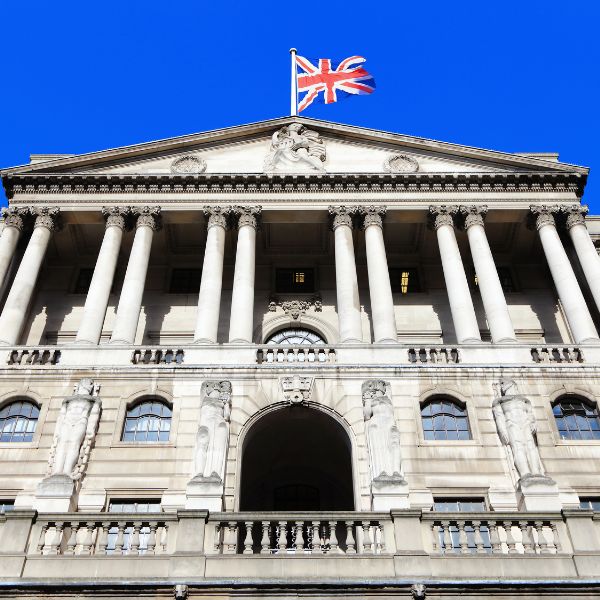
Who is responsible for controlling inflation?
It is the primary mandate of both the Bank of England’s Monetary Policy Committee (MPC) in the UK and the Eurozone’s ECB’s monetary policy to maintain price stability. For the MPC it is to “set monetary policy to achieve the Government’s target of keeping inflation at 2%” and the ECB it is “by aiming for 2% inflation over the medium term”. The equivalent body in the US is the Federal Reserve and interestingly, they have a dual mandate, which is to “achieve maximum employment and keep prices stable.”
I do not think it is too controversial to state that all three have failed to some extent in their primary objective over the past 18 months. Although in the US, employment levels have remained impressively high, so we should give the US Federal Reserve some credit for that.
How do you reduce inflation?
There are various tools and theories in relation to the control of inflation, including controlling the money supply (from where the phrase “monetarism”, commonly used during Mrs Thatcher’s time in power comes), Quantitative Tightening (QT) which is essentially rolling back and reversing years of Quantitative Easing (QE) that the central banks employed both after the Global Financial Crisis in 2008/9 and again during the Covid pandemic to boost economies. However, the primary tool used by all central banks is interest rates.
How do interest rates reduce inflation?
Higher interest rates suck money out of the economy, dampening spending, and loans. For consumers, mortgages, loans, and credit cards cost more, leaving less money to spend, resulting in lowering demand and inhibiting price rises. In addition, people are encouraged not to spend but to save, as it becomes easier to obtain a return on savings. Again, this adds to the reduction in consumer spending and businesses need to respond by either cutting prices or reducing the level of increases thus facilitating lower inflation.
Usually, a period of increasing interest rates is followed by increasing unemployment as businesses struggling under higher costs and lower sales must find ways to cut costs (and for many businesses, labour costs are a sizeable proportion of their cost base). This increase in unemployment can have a dampening effect on wage increases (people are prepared to accept a job offer at a lower rate than hitherto before), again all feeding into a deflationary cycle. I say usually, because employment levels have remained impressively robust in the US, UK, and the Eurozone.
b) Interest rates – what next.
Current interest rates
It is always a foolhardy exercise to try and predict events in the financial markets, but there are enough signals now, that some events appear to be inevitable (although I am keeping my fingers crossed that I do not regret writing this!)
In the US, the last interest rate increase by the Federal Reserve was in July 2023, in the UK the last increase of interest rates, to 5.25%, was in August 2023 and the ECB’s last rate increase was last September. Those rates have remained at that level ever since.
Last year market analysts starting using phrases like “higher for longer” and that rates would follow the profile of Table Mountain (a flat-topped mountain in South Africa if you are not familiar with it) in their assessment of what would happen to interest rates in the future. Another way of saying that once rates hit their peak, they would stay at that level for some time – and this has proven to be true.

What next for interest rates
Market analysts are strongly predicting that 2024 will be a year when interest rates start to decline. The only aspect of this prediction that seems uncertain is when the cuts will begin. The consensus is from Spring/early Summer with the ECB and/or Federal Reserve perhaps being the first to start the cycle of rate cutting.
Why in this important?
All the central banks are treading a fine line – trying to balance on one hand, calibrating interest rates to ensure the elimination of high inflation and bring levels back to around 2% sustainably. On the other hand, if they keep rates high for too long, they risk pushing their economies into recession. It is too late for the Central Bank of England, as the UK is already technically in recession (two successive quarters of negative GDP growth), as is Japan. The Eurozone is also perilously close to recession, but it is currently believed that the US is likely to avoid recession.
It is also important because high interest rates impact businesses as well as consumers and typically the financial markets have responded positively to the start of a rate cutting cycle which among other items, will be discussed in the second part of this article.
Financial update Italy 2024
By Gareth Horsfall
This article is published on: 9th March 2024

Hello again and welcome to my latest article (which was supposed to be released in February but has now ridden over into March 2024).
My delay was caused by some new found success recently as a star of YouTube (the use of the term ‘star of You Tube’ might be stretching it a bit, but I will leave it for now).
You may have seen the interview I did (you can see it again HERE) for Real Expats in Italy channel .
It has taken my name a little bit farther and wider that it had been previously and created a surge in new enquiries and queries, which I am very grateful for. It’s always nice to be introduced to new people and learn more about how people are living in Italy. The more I understand the more I can hopefully pass back to you through this E-zine. Anyway, hence why the E-zine is a bit later than usual.

There were a few things I wanted to report in this E-zine, non more so than the € 2000 flat fee charge for access to the Italian healthcare system for non-EU citizens resident in Italy (this doesn’t include students or those who are working and paying ‘contributi’ or those of you who have the S1 approval for reciprocal healthcare). You may remember from a previous E-zine ‘BIG ITALIAN TAX NEWS‘ from October 2023, that I had reported on the fact that this law was going to come into place on January 1st 2024. Well it did!
The interesting thing is that the financial impact is very different for varying groups of people. For example, I was speaking with a lady from New York recently and when I explained that she would have to pay the annual charge of €2000 to access healthcare (excluding doctors visits and prescriptions), her response was “well, I am paying $2000 already……each month!, so that would be a huge win for me”! Clearly when put into context of what people have to pay in the US for healthcare it seems a bargain.
The category which seem to have been caught out are the UK citizens resident in Italy pre-Brexit and who were accessing the healthcare system based on income criteria. (See the income calculation on the Ministero della Salute website link below). This still applies for EU citizens moving to Italy and wanting to buy into the healthcare system.
https://www.salute.gov.it/imgs/C_17_pagineAree_2522_listaFile_itemName_0_file.pdf
I was contacted by 2 people in late January to tell me that their local health offices were now asking for the full € 2000 pa. payment to renew their Tessera Sanitaria. They were not recognising the fact that they were UK citizens covered by the UK / EU withdrawal agreement. To be fair to the Italian authorities nothing was mentioned in the text stating that there would be an exclusion clause for UK citizens resident pre-Brexit, so it’s no surprise they were asked for the full amount. I asked some people I know who are still involved in the campaign to protect UK citizens rights post-Brexit and they could only tell me that the issue had been lodged with the UK Embassy, but that they had not heard anything back. I am not sure if that situation has changed but it may just be one of those cases where we just have to learn to live with it.
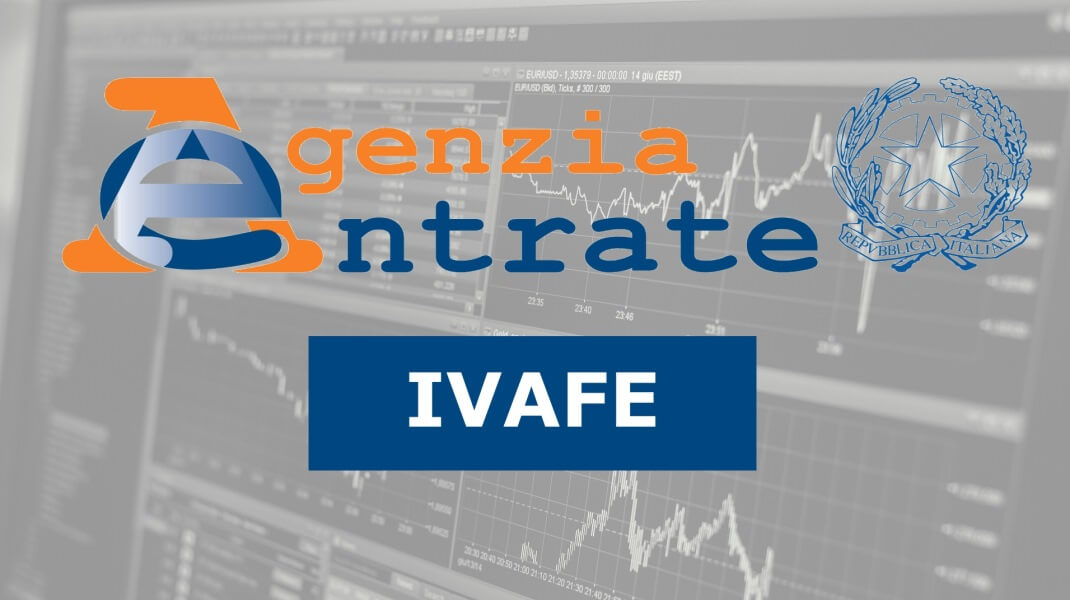
Alderney; Andorra; Anguilla; Antigua e Barbuda; Dutch Antilles; Aruba; Bahama; Bahrein; Barbados; Belize; Bermuda; Brunei; Costa Rica; Dominican Republic; United Arab Emirates, Ecuador; Philippines; Gibraltar; Gibuti; Grenada; Guernsey; Hong Kong; Isle of Man; Cayman Islands; Cook Islands; Marshall Islands ; Isole Vergini Britanniche; Jersey; Libano; Liberia; Liechtenstein; Macao; Malaysia; Maldive; Maurizio; Monserrat; Nauru; Niue; Oman; Panama; Polinesia Francese; Monaco; Sark; Seychelles; Singapore; Saint Kitts e Nevis; Saint Lucia; Saint Vincent e Grenadine; Taiwan; Tonga; Turks e Caicos; Tuvalu; Uruguay; Vanuatu; Samoa.
I mention this because a few people have contacted me recently who have had, or are having, an ‘expat’ professional career often working in places like Hong Kong or the United Arab Emirates and have accumulated assets in those jurisdictions; mainly investment portfolios and savings. In addition, it is not unusual for someone working overseas to invest/save in an offshore territory like Jersey or the Isle of Man as a way of retaining assets in a more familiar jurisdiction whilst living abroad. However, a subsequent move to Italy would mean that you would end up paying double the amount of wealth tax, and not only. In addition, Italy penalises some assets which are not held within the European regulatory framework so you could end up getting a double whammy tax bill when it could quite easily be avoided by re-structuring assets in a more tax efficient manner for Italian life.

As a US person moving to Italy to live, you can’t escape your own level of tax complication. The main one being that the US penalises you for owning some non US-domiciled assets but Italy does almost the same for investing in non-EU harmonised assets. Caught between a rock and a hard place! Again, a restructuring event might be the best way forward.
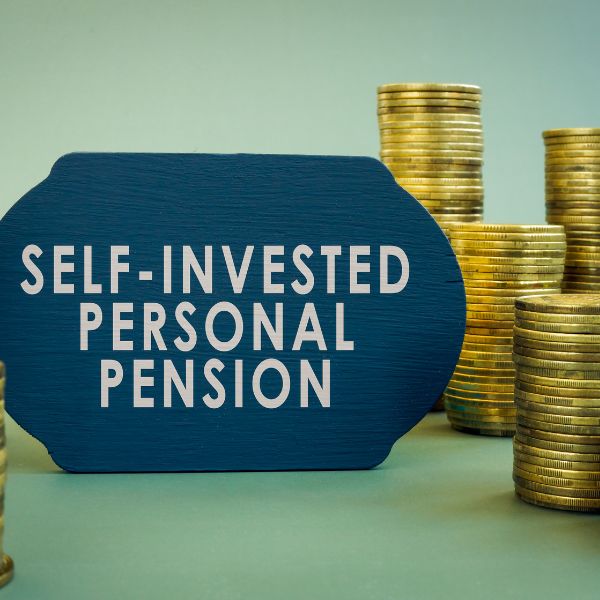
For anyone (UK citizen or any other national) who has contributed to a UK SIPP (Self Invested Personal pension) we now have a little more clarity on the tax treatment of the pension account. On 11th January, the Agenzia delle Entrate published an Interpello (opinion on a tax question submitted to them) specifically on the subject of this type of account. You can read the document HERE (interestingly, US retirement accounts (IRA’s) are pretty much the same legal structure as a UK SIPP and so it would make sense that the same logic is applied to them in Italy, as well).
The document pretty much confirms what I have known and been advising clients and commercialisti for some time. The first thing being that the Italian ‘previdenza complementare’ tax regime cannot be applied to these accounts, but equally neither should the wealth tax be applied to this kind of retirement accounts.
If you have any kind of UK personal pension account then I would suggest you take a look at the section RW on your Italian tax return and see if the wealth tax has been applied. The tax will be shown in the box No 15, and it should not be there! If you find this is the case you need to speak with your commercialista. Instead the box No 20 should appear with an ‘X’, in it which applies the ‘monitoraggio’ status, but not taxed. Also, do not assume that because wealth tax is not applied that it does not have to be reported…it does. It’s just that it is monitored as an asset rather than taxed on the fund each year. You will normally be subjected to tax when you make a withdrawal from the account. If you are unsure what to look at, then you can always contact me and I can take a look for you.
Tax declaration time is rapidly approaching, commercialisti are starting to be run off their feet and mistakes can be made so if you are invested in a UK personal pension plan (individual or corporate), a SIPP, or a QROP’s, then check your tax return for accuracy and ensure that you are not paying tax that you shouldn’t be paying!

On a final note for this E-zine, I wanted to let you know that I will hosting another Rome Business Lunch on April 12th 2024 at Ristorante Amedeo (nr Termini).
On previous lunches we have had people from all walks of life, not just business people. Also some retirees or people running many different activities. Most found it incredibly interesting and useful to connect with people who they may not have otherwise come into contact with in the Englsih speaking community. It’s a great way to speak with people who are providing services in a non-pushy, informal manner.
I give everyone a chance to speak and introduce themselves.. If you run a business you can explain to the group what you do, and if you are along to listen to others and gather information you can just explain why you are in Italy and tell us a story about your life. I have found it to be a great way to connect with others, for many reasons, and not just business people exclusively. The €25 a head menu is shown below for your information. So, I hope you can join us. All you need do is to contact silvia.loi@spectrum-ifa.com and let her know that you would like to be added to the list. (You need to book no later than Tuesday 9th April)
In my next article I will be looking at the subject of the expenses that you can detract from your taxes in Italy, such as medical expenses. So stay tuned for the next edition!
If you have any questions about any of these issues and how they apply to you and your financial situation, or if you think that you might be paying more than need to, then do get in touch and I will be happy to see if I can help you with your plans.
I can be contacted on email: gareth.horsfall@spectrum-ifa.com or on cell: +39 333 6492356
Financial update France March 2024
By Katriona Murray-Platon
This article is published on: 6th March 2024

For me it always feels like January is such a long month, February passes in a blink of an eye and all of a sudden it’s March and there is so much excitement and activity. I had a few days off at the end of February to spend time with my boys, rest and recuperate and catch up on some reading.
One of the things I like to read is the Le Particulier magazine and this month they had a very interesting special limited edition on how and where to invest in 2024. There was a lot of information in this special edition which I found fascinating but also a lot that confirmed many things I had been advising for a while.
One key point is that whilst having savings accounts such as the Livret A, the LDDS and (if you are eligible) the LEP are great places to keep your money in the short to medium term, by which we mean in the next 5 years, these accounts should only be used as emergency funds or money destined for a particular project that you intend to carry out soon. This is why on the Spectrum Confidential Review document we ask our clients which bank accounts they have, what the interest rate is on them and what is the purpose of this money. If there isn’t a reason to have these savings and you can’t foresee a reason for using the funds within the next five years, then it is important to think about investing some of it as, no matter what the rate currently offered, such rates will not protect your money from inflation over the long term.
I’m often asked about how to save money for children. If you have a child aged between 12 and 25 years of age you can open a Livret Jeune in addition to them having a Livret A. Your children who are included in your tax return cannot have a LDDS as these are only for tax payers. However the Livret Jeune can have a maximum capital of €1600 and whilst the interest rate is not fixed by the Banque de France, banks are required to set an interest rate which is at least the equivalent of the Livret A but may also play the competition and offer more.
In the longer term it is important to invest and the preferred way of doing that in France is by using an assurance vie. According to a statistic in this special edition of the Le Particulier magazine, over a period of 20 years the Livret A account had only made 40% compared to a CAC 40, with dividends reinvested, managed fund with a 3% management fee, over the same period made 289%.

March is a month where things start to happen. I read recently that mortgage rates have begun to fall in France. Although the ECB decided on 25th January to keep the key three interest rates unchanged, there is a strong expectation that mortgage rates will continue to fall this year possibly reaching 3.5% this summer and as low as 3% by the end of the year. This will be much welcome news for those looking to sell property in France.
From 1st April you won’t need to fiddle around to try and put the little green insurance certificate square on your windshield. If you are stopped by the police during a routine insurance check they will be able to tell whether you are up to date with your insurance by checking your license plate with their database.
For those invested with the Pru, there was good news this month as on Monday 26th February 2024 the Prudential Assurance Company (PAC) board reviewed the Prufund Expected Growth Rates (EGR) as part of the quarterly review process and once again there were no unit price adjustments. The expected growth rates remained the same for the PruFund GBP Growth and Cautious funds, whereas for the PruFund Growth Euro fund the Expected Growth rate was lowered slightly to 6.6% (previously 6.9% in November) and the PruFund Cautious Euro to 5.7% (previously 6.2% in November).
Although the tax season in France doesn’t begin until April, I know that lots of you will be thinking about preparing your tax returns. If you have any questions on your taxes or any other financial matters please do get in touch.
The view from the Danube
By Peter Brooke
This article is published on: 4th February 2024

2024 marks my 20th year as a financial adviser at The Spectrum IFA Group and I am lucky to have been invited to every one of our annual conferences since I joined in June 2004. Last week more than 40 members of the Spectrum family got together in the beautiful Hungarian city of Budapest for our latest conference.
We are always delighted and grateful to welcome excellent external speakers from some of the big investment and insurance firms we work with throughout the year who share their wisdom (and/or best guesses) for the months and years ahead; it was therefore an ideal time for me to pick brains over some goulash and a glass of wine and bring you some considered observations for investing in 2024.
But before looking forward, let’s look at how we got here.
2022 was a very tough year for investors with the hangover from the Covid pandemic and the war in Ukraine creating a perfect inflation storm which led to the most aggressive interest rate hiking cycle in over 40 years. This significantly depressed bond and share values.
Through 2023 there were four distinct periods of rhetoric and market behaviour… it started with the Artificial Intelligence (AI) “revolution” and a huge rally in the “Magnificent 7” stocks in the US, then attention turned to likely recession… but was it going to be a “soft or hard landing” and then a considered period of ‘is this the end of inflation?’ followed by a change in attitudes to try and guess when the first interest rate cuts would start… we even ended the year with a ‘Santa Rally’ in global stock markets…. confusing times!

“Anyone who isn’t confused really doesn’t understand what’s going on!”
- In 2024 nearly half of the global population will be going to the polls; will this influence investments?
- Can we avoid a recession, and if not, what will it look like?
- Will interest rates be cut and if so, what does this mean?
- Is AI really going to change the world?
Most of the investment managers we spoke to last week had the same view on these sorts of questions…
Politics rarely has a material long term effect on investment returns but can create short term uncertainty and opportunities – be active and don’t get caught up in the hype!
Recession
- Soft Landing = inflation comes down and economic growth is moderate – the ‘Goldilocks’ scenario
- Hard Landing = inflation comes down but the economy shrinks – leads to higher unemployment, default on debt and lower consumption
The consensus view is that we will probably avoid a hard recession, especially in the US, which is still the most important economy on the planet. US households still have high levels of savings and long-term debt structures, so aren’t too affected by higher short term interest rates; unemployment remains low and the ‘Inflation Reduction Act’ is still pumping money into the economy.
However, there is a case for a hard landing with some indicators predicting one, but we live in a world of probability and not certainty and this is changing constantly.
“Don’t be too pessimistic but remain cautious … and don’t be too optimistic… anyone still confused?”
We are at the end of the inflation cycle now and so interest rates are likely to start being cut in May (US) and June (Europe). This will be good for bond values, so don’t sell them now.
Artificial Intelligence will destroy some businesses and will make some very profitable. “It’s like internet 2.0”. It is also unlikely to be the companies that ‘started’ the AI revolution which will do best from it… it will be the companies who best embrace it and who create the infrastructure for it, that will profit most.
Demographics – nothing has changed – there are more of us than ever and we are living longer… and the Obesity epidemic is not cured by one or two weight loss drugs, there is a long way to go.
Retreat from globalisation
“Protectionism”/“MAGA”. We are not going back to globalisation and is it a coincidence that geopolitical instability has also increased? The world is a more dangerous place – we must consider greater Geopolitical risk.
So, with all these factors to consider how do we invest for 2024?
Retreat from globalisation = Defence companies and Oil producers, this might not sit well with all investors.
- AI = hardware, chip makers, nano technology, semiconductors
- Demographics = MedTech – improved prevention and treatment efficiency as opposed to just buying more drugs
- Hard Recession = own government bonds! Also own high quality equities – be active
- Soft or No Recession = own equities – but avoid those with high debt – be active

Even with all of the confusing narrative there are some reasons to be positive in 2024:
- Geopolitics will remain the same, protectionism will continue
- Interest rates are moving back to ‘normal’
- Strong labour market
- Housing set for recovery…. Falling interest rates
- Productivity growth from technology and AI – leads to greater profits
- Markets go up 70% of the time
“Look through the hype and stick to your own personal investment commitments and goals … oh… and employ an active manager!!”
I would very much like to thank the investment management teams at RBC Brewin Dolphin, Rathbones Investment Management, Evelyn Partners, New Horizons and The Prudential for their time and expert views on the content in this email.
If you would like to dive deeper into these subjects please check out the following links:
5 Investment themes for 2024: from Evelyn Partners
Some predictions for the year ahead from David Coombs at Rathbones
If you like podcasts then I highly recommend David Coombs amusing and insightful monthly Sharpe End Podcast
Feel free to get in touch if you have any questions via the below channels, or the booking system – always drop me a quick message if you need a time slot outside of those available.
If you have missed any previous emails, click here to access the Archive.
For now, have a great day, speak soon…
Tax planning in Italy 2024
By Gareth Horsfall
This article is published on: 3rd February 2024

I am back from The Spectrum IFA Group conference 2024 which this year was held in Budapest. I have been to Budapest before but had forgotten just how interesting the city is.
Getting there was relatively easy enough from Rome: Ryanair to Budapest. Getting back was logistically a bit more difficult, needing to re-route through Prague on a Friday afternoon, creating a 4 and 1/2 hr round trip. This I found quite strange. On a Friday there weren’t many flights going from Budapest to Rome. There was one that returned at some ungodly hour, but I preferred to get home earlier so took the alternative route.
Ryanair is always a variable experience for me. The big panic is always how much your bag weighs and if your hand luggage will fit in the container, because you are never sure who is going to ask and if they are going to be pedantic about the rules, or not. In my case I had packed to perfection on the way out so there was no question, but my main bag weight limit was right on the nose of 20kg. My carry on bag, quasi empty.

At these conferences we always come away with some notepads or useful items and inevitably I have to think how to pack these things. I didn’t really want to lug my carry-on full of things and run the gauntlet of the lady at the gate asking me to check the size of my bag. So, I chose to overload my main bag and take the chance.
At the Budapest end all went smoothly as my bag weighed 21.3kgs on their scales and I guess they used some discretion that my main bag was empty and so the extra could go through. Going through Prague airport was a different story. There, interestingly, my bag weigh 23.4 kgs (which was probably more likely!) so I didn’t argue that point. However, I got the Ryanair agent who went by the book. At this point I tried to argue that my carry-on was almost empty and I could just move some things across, but the overall weight would be the same, so what’s the difference? As you might imagine that didn’t work. He did offer to allow me to move to the side and unpack my main luggage and put some things in my hand luggage. I just couldn’t stand it, so I just agreed to pay the extra fee. We were talking 2kgs at the most and I didn’t have the energy to start unpacking and packing again in front of a queue of people. What a pain! Anyway, I guess I should be happy that I managed to at least survive the Budapest side without issue.
So why am I mentioning all of this? Well, one of the main themes of the conference was Artificial Intelligence (AI) and the impact it will have on our lives in the here and now and the not so distant future. The question is will Ryanair become more consistent when they inevitably use AI in their booking procedures, or maybe they will just continue, for some time to come, with their current form of ‘intelligence’ instead of the artificial type? Knowing Ryanair, it won’t take long to find out.
Talking points for 2024 and beyond
Anyway, enough about my travel woes and onto some of the talking points raised and ideas for the future which I learned from The Spectrum IFA Group conference 2024.
A quick look back at the markets – 2023
You may have noticed by now that there was a slight rally in the stock market towards the end of 2023. What you may not have noticed was that it was heavily concentrated in one specific sector: TECH! However throughout the year there were some other more interesting developments which caused market volatility during the year.
AI
The hype around AI started driving up markets early in the year. I am sure you know the hype by now: AI will take over the world, humans will become batteries for electricity generation, we are all going to lose our jobs and be replaced by machines, it will be impossible to speak with a human again etc etc. Well, let me put your mind at rest, none of the above are true….at least for now.
(MIT in the USA think that AI is unlikely to replace as many jobs as we think and even those that it does, it will probably not do the job as well as humans. https://fortune.com/2024/01/22/ai-jobs-humans-cost-mit-study/)
If you don’t believe me then take a look at the following slide, courtesy of Evelyn partners, which shows the G7 median unemployment rate going back to 1755! Whichever jobs are displaced by AI will likely be created in some other field, of which may not even exist yet!
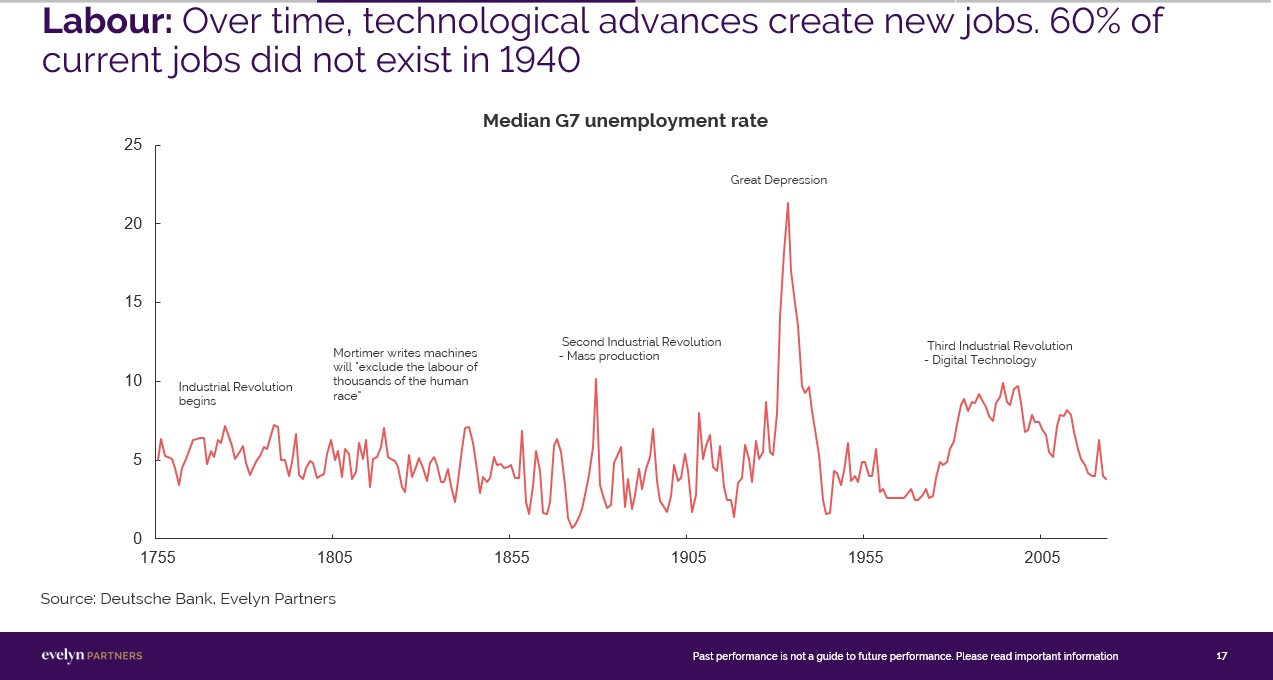
Not only, but AI is in in its infancy (think internet 2000 – if you haven’t used ChatGPT yet I would encourage you to ask it some questions and see what kind of responses you receive, you will likely be under whelmed ), but it will likely develop quicker than any technology we have ever seen in human history!
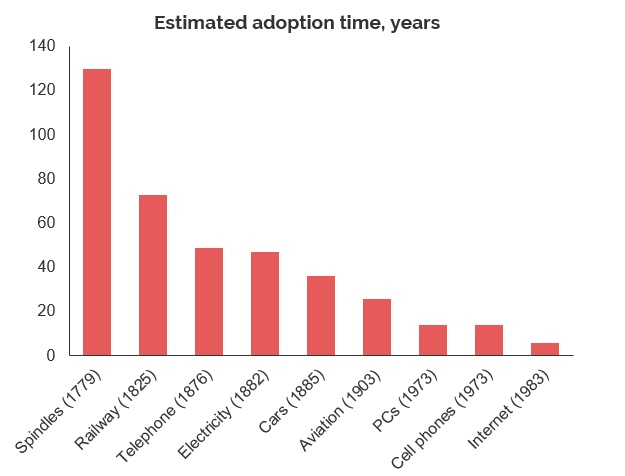
However, here is the list of the top professions which might be affected by AI (Teachers beware!!)
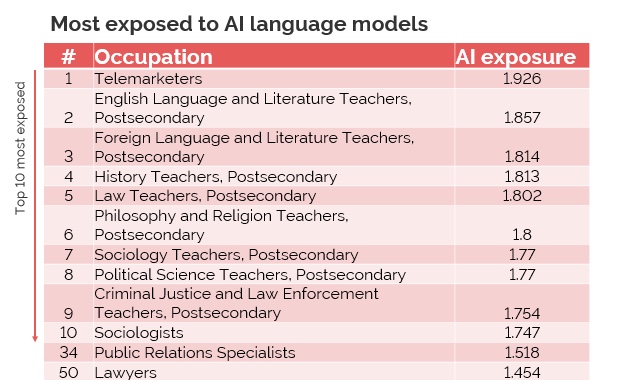
And the least affected:
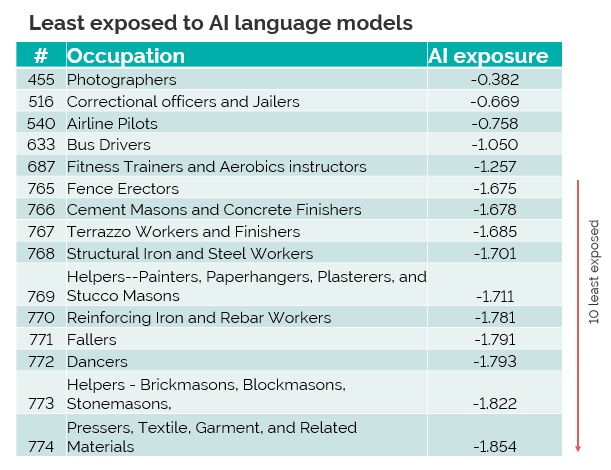
Here is an interesting fact for you –
In the Federal Reserve in the USA there are approximately 500 employees of which 400 are at PhD level and above, who are all engaged in making economic forecasts. The problem is that they are absolutely terrible at forecasting. In almost every period their forward economic projections turn out to be wrong. As an example in 2021 they anticipated that interest rates in 2023 would be at 1%, when in fact they were 5.25%!
They use historical economic data to predict the future rather than forward looking models which are now readily available from many different companies. Is this an AI opportunity?
But enough of AI, some other strange hype happened during 2023….

Weight reduction drugs
A buzz started around new drugs that would help you to lose weight. Apparently, it will be as easy as taking a pill before long. Long gone will be the days of dieting and exercise!
The publicity from various celebs touting the benefits of weight loss drugs started a hype around the fact that we would no longer have diabetes, no more knee surgery would be required, nor hip surgeries and all our eye problems would be resolved. Who knew that it was all down to weight loss and a pill could cure all?

Airline company stocks rose
And if you couldn’t believe that all that was true, then airlines stock prices started to rise because it was believed that bigger seats would no longer be required as larger people would be no more, and so with more space they could fill the plane with more seats and earn more profits.
So, you might be forgiven for wondering why the markets didn’t really climb during the year when all these actors were at play. Well, the truth is that markets did climb, but they also fell back around November. The hype died. Every 3 or 4 months in 2023 there was a new theme which came to life and then quickly died away. It was almost like everyone was searching for some sign of good news in a year, which otherwise was once again occupied by concerns about global war. Thankfully the year finished on a positive note mainly because of the rise in stock prices of the Magnificent 7 – as they are now known – (Meta, Amazon, Alphabet (Google), Apple, Microsoft, Nvidia and Tesla).
To 2024 and beyond
So looking forward, what is awaiting us?

US elections
Probably the single most important event of the year will be the US elections in November, and the likelihood that our friend Donald Trump could very well become the President of the United States once again. However, as I mentioned in my previous E-zine the third candidate Robert. F :Kennedy Jr is striving to get his Independent party on the ballot and could be a contender. From what I learned, it seems unlikely that Joe Biden will be voted in again mainly due to growing concerns about his health and mental condition.
The USA is faced with multiple issues that need fixing, none more so than the illegal immigration problem, bringing manufacturing back to the US, fixing the rural rust belt crisis and the fentanyl crisis, and there is a possibility that under Trump they may also leave NATO. The USA is retreating from the rest of the world and becoming more protectionist. Globalisation is unwinding. In some ways it is starting to look very much like the period of the 60’s and 70’s: wars, geopolitical risk, and perhaps the end of the centre left and not just in the US, but also around the world. So all eyes are on the USA this year. US general election years can be good for investment markets (there are no guarantees), but often the government in power will do its utmost to stimulate the economy, consequently stimulating the markets which may help with the voters. It’s all to play for in a world which is changing very quickly.
Elections around the world
Let us not forget that there are also going to be a further 64 elections around the world in 2024, plus the European Union. This will cover 49% of the world’s population. We might see some interesting results as the year progresses.

Bonds versus Equities
For years leading up to the start of the current inflationary cycle (2022) there has been debate over whether one would have more Bonds or equities in a portfolio to drive growth. Almost always, over the last 20 years, equities has won outright with interest rates at low to zero and sometimes even negative there seemed to be little value in the bond sector (I am talking mainly sovereign bonds).
However, a number of our speakers made the case that perhaps the tide has turned. Not since the 1980’s and 1990’s have they seen such value in the bond sector. Prices are looking attractive, particularly US treasuries and sovereign bonds over a 1, 2 and 5 year periods. Not only do sovereign bonds now have some potential to provide reasonable yields (interest), but also capital growth and capital protection of your portfolio as well.
Portfolio diversification in the1990’s, when I first started investing, very much looked like a 60/40 portfolio. 60% equities and 40% Bonds or vice versa depending on the way of the economy. These days we have many more asset classes to help diversify our portfolio, but it might be that your portfolio starts to resemble those portfolios of the past moving forward.
Healthcare
As I stated above healthcare was very much a hyped theme in 2023, but it will continue to play a much more important role for growth in coming years. I am not just talking about over publicised weight loss drugs but the developments in medical technology. The world is aging. Almost all developed countries in the world now have a falling or negative replacement rate (the birth to death ratio to sustain population). The Far East: China, S. Korea, Japan, for example have dangerously low replacement rates. This means that their populations are aging at a fast rate and with the benefit of better medical care they are living longer. Italy included!
Medical technology will help to relieve the stress on already over-burdened health care systems. A great example of this is my mother in law, who had polio when younger, now has difficulty walking and more importantly a fear of falling. She recently told me that she had bought an iPhone and iWatch because the iWatch will call for an ambulance if your heart rate drops and it suspects that you are unconscious and need medical help.
We might even see more of these things become mandatory if we want to receive access to our health care systems. Imagine your doctor being able to get real time access to your heart rate data if you are suffering from cardiovascular problems.
This will be a huge growth area, but identifying the tech winners might be harder than you might think.

Defence
It seems that we ‘humans’ don’t have a great capacity for living in peace with one another. We could now have about 5 – 10 years of retreating from globalisation. The retreat probably started in 2022 with the Russia/Ukraine war, if not before with China/US trade wars. If Trump pulls away from NATO then the EU is going to have to find a way to defend itself and to do that it has to re-stock its weaponry. This has already started. The US needs to do the same and almost all other countries around the world are starting to see national sovereignty as more important than globalisation.
Defence stocks will almost certainly benefit from a multi-year period of growth as armoury, weaponry and military logistical hardware be required for re-stocking purposes by nations across the world. Who will buy from who will very much depend on military and economic interests.

AI Hardware – not software
With all the hype over AI software, the real winners could be the companies who provide the hardware to build the AI infrastructure. Think nano computing chips: Nvidia, AMSL, Taiwan Semiconductor Manufacturing Company etc.
Nvidia is just one of these companies. It was valued at 50 times its earnings at the start of 2023 (average price to earnings is about 17 times across a broad range of companies), but this grew a further 3 times over the course of 2023…is this justified? Probably not. Is it likely to be a bubble? More than likely. Or is their hardware so needed for an AI powered world that it can keep on growing? Do, therefore, traditional valuation metrics still mean anything? Only time will tell!
I read the other day that to power the AI universe that the utopian thinkers would have us believe is our future, we would need so much energy that we would effectively need to cover the earth with solar panel and wind turbines, if we were to try and support it with green sustainable energy sources. To what degree that is true, I don’t know, but we are going to need an incredible amount of energy to power the tech needs of the future and it does beckon the question, where is all that energy going to come from? We need a revolution in the storage of energy and no-one is talking about that…yet.
Rewarding Loyalty
As a shopper we all like to think that we are loyal customers. A lot of our favourite places to shop and eat are digging deep to discover just how loyal we really are.
McDonalds is a great example, you can now sign up to their loyalty scheme and receive offers for free burgers and other deals. They are seeing the customer return rate increase as a result of their loyalty schemes. (Interestingly, they are, at the same time pulling away from healthy food options because they were a resounding failure because who wants to go to McDonalds for a salad and a vegan burger… right?!)
Costco is another success in the USA. They are a membership driven business. Their prices and quality of goods are second to none (I have visited one in the UK and can confirm it’s true!) but it’s not that which pulls clients in. They actually have the cheapest gas prices in the USA and this drives people to become members which then allows them to market to each and every customer according to their specific needs.
Customer focused businesses will survive in the modern world.
And finally….boring old infrastructure
(For any non-UK person reading this, HS2 is the high speed railway which the UK has been planning and building for years and is turning into a national farce. But why am I mentioning this? )
Did you know that the USA is in the process of building 50-100 equivalent high speed rail networks?
Infrastructure companies, those building tunnels, roads, railways, electricity grids, toll roads, inter-connected cities, schooling, healthcare facilities etc, leading up to 2023, were considered to be solid businesses in which to invest that would provide long lasting portfolio stability and a decent return. However like most other sectors they were also burdened with debt. In 2022/2023 the interest rate spike suddenly meant they had to contend with significantly increased debt repayments and therefore started restructuring their businesses. The markets didn’t like that and most stocks in this area were down 30-40% in 2023, that created a buying opportunity, because in the end some boring old businesses are worth investing in.
The USA is undergoing significant infrastructure build. A southern border wall is almost assured to be erected following the US election, whoever comes ino power, and besides that we need to update, modify and prepare our economies for the future. Infrastructure spend is going to continue unabated.
So on that note I will leave it there. I just wanted to add a note about some of my activities planned for 2024.

I would like to thank everyone who enjoys reading this E-zine, those who support me by forwarding it on to others and to those of you who email me to let me know. I often wonder how many people it is reaching and if you actually enjoy what I write. To hear back gives me some solace that I am doing the right thing. They take a bit of time to think about and write but are enjoyable to do. If you do find them useful then please do forward them onto others as it is one of the best ways to widen my audience and is a great help.
In 2024 I will be expanding my short video content on topics that come up during the year, and I can do a quick video about them. I will, of course expand on these subjects in my E-zine. If you are interested then you can see the videos, to date, on my page on The Spectrum IFA Group website. Just click our logo to the right to take you to the page.
Tax Efficient Investing for Expats in Malta
By Craig Welsh
This article is published on: 30th January 2024

Many expats living in Malta will be deemed ‘non-domicile’, which means that while you are indeed ‘tax resident’ in Malta, you are also ‘non-domiciled’. This can be great news for your investment portfolio.
And as interest rates on cash deposits may well have peaked, Craig Welsh, who manages our Malta office, explains how expats can take advantage.
KEY TAKEAWAYS
- If you are living in Malta but are classed as ‘non-domicile’, then you can benefit from tax-free growth on your investment portfolio
- We help clients build tax-efficient investment portfolios according to their circumstances and risk profile
- Set aside an emergency fund of around 6-12 months expenses plus money for any upcoming purchases, then consider investing the remainder for longer-term growth
- Equities (shares) have comfortably beaten cash returns over the long-term, and interest rates look to have peaked
Investing should be with a view to the long-term and we do not recommend investing unless you have a ‘time horizon’ of at least 5 years. That simply means you don’t plan to access the money within that period. Markets go up and down, and you don’t want to be accessing your capital at the wrong time.
So – build up cash reserves which would cover your living expenses for 6-12 months. You can earn some interest on that these days, but leave it accessible. Also – if you are planning a major purchase (for e.g. wedding, car, or a property deposit) then that should also be left in cash.
Invest for Long-Term Growth
Once the emergency fund is taken care of, additional money can be invested. At Spectrum, we take you through a careful risk profiling exercise as well as discussing any sustainability preferences you may have.
We then help our clients find the most suitable, tax-efficient ‘wrapper’ and build a diversified portfolio of investments with the aim of long-term capital growth.
Inflation has dipped, and it looks like cash interest rates have peaked. No one has a crystal ball of course, but that could be good news for global markets in general. What we do know is that equities/shares have comfortably beaten cash returns over the long-term.
Our clients have access to mutual funds which have a track record of steady and consistent long-term returns. For the more adventurous investor looking for higher long-term returns, other funds / tracker-type solutions are also available.
If you would like to discuss your investment requirements, then don’t hesitate to contact Craig at craig.welsh@spectrum-ifa.com or on +356 9933 8271.
Misconceptions about living in Portugal
By Portugal team
This article is published on: 24th January 2024

There are so many questions, so many concerns, so many areas that need clarifying. Here we dispel some of the most commonly held misconceptions for expats who have chosen to live in Portugal.
- “I can come and go as I choose”
To determine and maintain your residency in Portugal or any other country, you will need to follow certain rules regarding the amount of time you spend there and your residence could change year on year depending on your circumstances.
For instance, if you want to avoid being subject to UK taxes after leaving, you will need to limit the number of days you spend in the UK. This limit can range from as little as 16 days to as much as 182 days.
- “I’ve left the UK so I don’t have to pay tax there”
The tax system in the UK is notoriously complex and can have lasting effects on former residents who have not properly cut ties with the country. Despite leaving the UK, you may still be responsible for paying taxes there on income, capital gains, and even after death (inheritance tax).
Additionally, specific types of income and gains continue to be taxable in the UK even after you’ve left. As a result, you may need to file an annual tax return with HMRC in the UK as well as in Portugal.
- “I’ve left the UK, so I won’t be subject to UK Inheritance Tax (IHT)”
Unlike income tax and capital gains tax, which are usually determined by your residence, your liability for UK IHT is based on your domicile status. This means that even if you no longer live in the UK, you may still be subject to UK IHT if you have a UK domicile of origin.
There are ways to minimise or eliminate your UK IHT liability, but it is a highly complex area and not as simple as setting up an offshore trust, gifting assets or establishing a QNUPS – UK anti-avoidance rules are extensive and highly effective. It’s important to seek specialist tax guidance as early as possible, as any challenges by HMRC will only occur after you’ve passed away.
- “I report my income in the UK so I don’t have to declare in Portugal, even as a Portuguese resident”
Some assume that they have the flexibility to report their income and gains wherever it yields the greatest financial benefit or where they ‘have always paid taxes’, rather than where they are obligated to pay taxes.
As a resident of Portugal, you are required to declare your worldwide income and gains and pay the appropriate tax in Portugal. You may also be required to declare income and gains in the country where assets are physically held/registered, but there are rules in place in most countries to avoid double taxation.
- “Non-Habitual Residence (NHR) means I’m not resident in Portugal”
The NHR program is a ten-year tax incentive scheme for new residents of Portugal. The name of the program can be misleading, as it suggests that you are not a resident of Portugal. In reality, NHR is intended for those who have not been tax resident in Portugal in the previous five years, and you must be legally resident in Portugal before you can apply for it.
This can lead to some confusion, causing some people not to apply for the NHR program, or even being discouraged from doing so, despite it being a financially advantageous decision in most cases.
- “NHR means I’ll pay no tax”
Although the NHR scheme offers the opportunity to attain low or even zero tax rates, it requires careful planning to achieve the optimal outcome. Simply applying for the program is not sufficient, and you must take proactive steps to ensure that you are in the best possible position to benefit from it.
For example, not all foreign income is exempt from taxation, you may need to restructure your income sources to fully utilise planning opportunities, and generally, capital gains are not exempt under NHR.
Becoming a resident of Portugal can result in significant financial and tax benefits, but it is crucial to have a comprehensive understanding of the cross-border complexities involved, such as residency regulations and tax declaration obligations. Only with a clear understanding of these issues can you take full financial advantage and achieve the most favourable outcome.
Taxes in Italy 2024
By Gareth Horsfall
This article is published on: 21st January 2024
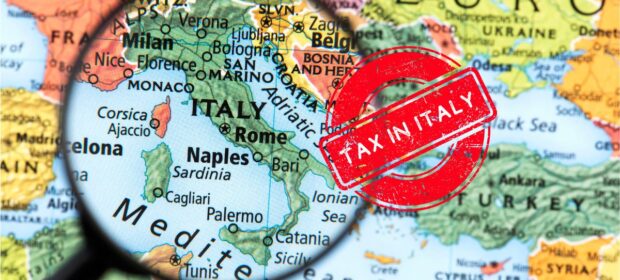
In this E-zine I am going to provide a brief summary of the taxes which mostly affect you and your lives in Italy. It is not an exhaustive list, but you can use this for reference or discussion tool with your commercialista if you need to.
There may be specific elements regarding your personal situation, but I shall discuss the most important ones hat might affect you. Throughout this article, I shall also describe the latest changes from the Legge di Bilancio which have now been introduced in 2024.
Summary of the main taxes that affect your life as a ‘straniero/a living in Italy
The first thing you need to remember, as a fiscally resident individual of Italy, is that you are subject to taxation on your worldwide earned and non-earned income: capital gains and assets (including property). It is your job to make sure that you report these to your commercialista each year to complete your tax return. But before you do it for the first time, a financial planning exercise can come always come in useful.
Fiscal residency generally means that you qualify under ‘1’ of the following criteria:
- You are registered as a resident on the anagrafe
- You spend more than 183 days a fiscal year ( calendar year) in Italy
- You have your main business, social or family interests in the country
TAX ON INCOME
NEW INCOME TAX RATES FOR 2024 (IRPEF)
In a move to simplify the tax regime in Italy the tax bands have now moved from 4 to 3 in 2024.
| € 0 – 28,000 | 23% |
| € 28,000 – 55,000 | 35% |
| € 55,000+ | 43% |
EMPLOYMENT
If you are employed or self employed then there are multiple options available, from partita iva, partita iva, regime forfettario, rientro di cervello, amongst others. I won’t go into details here as these really need to be looked at on a case by case basis, but needless to say that there are financial planning opportunities. If you are working, or intending to work, in Italy or if you have any questions in this area you can contact me on gareth.horsfall@spectrum-ifa.com
2024 Change: INBOUND WORKERS TAX REGIME
Regarding the inbound workers tax incentive. The previous tax regime was a 70 – 90% income tax (and social security contributions) deduction for a period of 5 years. This has been reduced to 50%, capped at an annual gross income of €600,000. The time spent as non-resident of Italy prior to applying has been increased to 3 years, (or 6 – 7 years if there is continuity in the employment relationship). However, Italian residency must now be retained for 4 years in Italy, whereas it was previously 2. They have also introduced a requirement for a high level of specialisation (degrees, masters etc) in the qualifications necessary for the job in question.
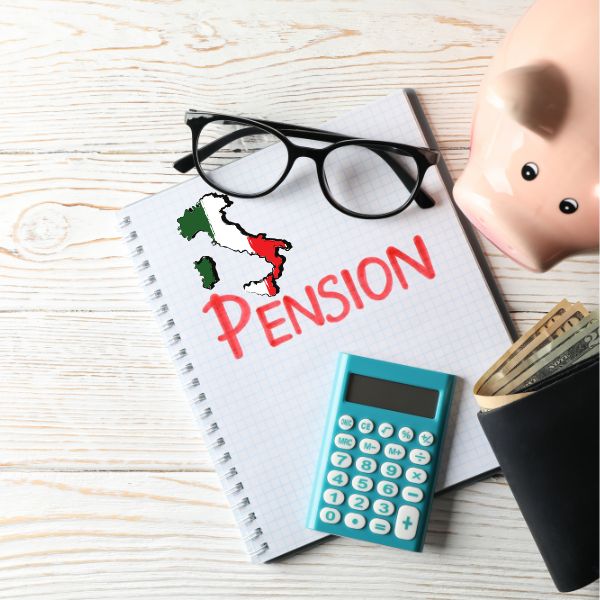
PENSIONS
Most of my clients are in, or planning for, retirement to some degree and so understanding how your pension will be taxed as a resident in Italy is of paramount importance.
PRIVATE PENSIONS AND OCCUPATIONAL PENSIONS
If you are in receipt of a pension income and it is being paid from a private pension provider / 401K provider / occupational pension provider or you are in receipt of a state pension / social security, then that income has to be declared on your Italian tax return and tax will be due on it.
If you have paid tax already on that income, then a tax credit will be given for the tax paid in the country of origin (assuming that the country has a double taxation agreement with Italy). Any difference between the tax rates in the country of origin and Italy will have to be paid.
I often hear stories of people who are told by their commercialista that their state pension / social security pension is not taxable in Italy, and, more recently I have seen numerous videos on Youtube of individuals who also make this claim. This is absolutely NOT the case!! The UK state pension and US social security are 100% taxable in Italy. It is not excluded from the double taxation treaties and therefore must be declared in Italy. Failure to declare could mean fines and penalties.
2024 Change: NO TAX AREA
For some time now there has been what is know as a NO TAX AREA for someone receiving a pension in Italy (“pensioner” is defined as someone who is receiving official state benefits i.e., social security or state pension). No distinction is made between pensions being paid from abroad or within Italy.
From 2024 the NO TAX AREA has been increased to €8500 per annum.
It is important to understand that this is NOT an allowance i.e., an exclusion of income tax on the first €8500 for ALL pensioners. It is a tax credit system. If your total income (reddito complessivo) is €8500 or less then all the tax payable on your pension will be provided as a tax credit. HOWEVER, the more your total income, from all sources, increases over €8500, the more of the tax credit you lose. If your total income is €55000 or above you would not receive any tax credit.
GOVERNMENT DERIVED PENSIONS
It is a good idea to define what is meant by government paid pensions. The definition according to the Italy / UK / USA double taxation convention 1988 is, paid from:
” a political or an administrative subdivision or a local authority”
This generally means civil servants of any kind and foreign office employees but would generally include teachers who have worked in a public school, health care workers, military personnel, police fire service etc. In these cases, the pension awarded is taxable only in the state in which it originates, and tax is generally deducted at source in that country of origin.
But there are some tax idiosyncrasies to look out for here. On the positive side, this income is not taken into account when calculating the tax on your other income sources in Italy, e.g. rental income, and it is not declared on your tax declaration in Italy.
On the negative side, for those of you who are thinking of becoming citizens of Italy, these pensions are only taxed in the state of origin UNLESS you become a citizen of Italy, or are one already, in which case it becomes taxable. So for anyone thinking about cittadinanza, plan before you leap!
My final note on pensions is to say that ensuring that they are filed correctly on your tax return in Italy is essential. There are only various shades of grey when it comes to how to declare overseas pensions correctly. Speaking to the right experts might mean the difference between paying more tax than you need to.
INVESTMENT INCOME AND CAPITAL GAINS
As of 1st January 2017, interest from savings, income from investments in the form of dividends and other non-earned income payments stands unchanged at a flat tax rate of 26%. Realised capital gains are also taxed at the same rate of 26%.
(Interest from Italian government bonds and government bonds from ‘white list’ countries are still taxed at 12.5% rather than 26%, as detailed above. This is another quirk of Italian tax law as this means that you pay less tax as a holder of government bonds in Pakistan or Kazakhstan, than a holder of corporate bonds from Italian giants ENI or FIAT).

Property which is located overseas is taxed in two ways. Firstly, there is the tax on the income and, secondly, a tax on the value of the property itself.
THE INCOME FROM OVERSEAS PROPERTY
Overseas net property income (after allowable expenses in the country in which is located) is added to your other income for the year and taxed at your highest marginal rate of income tax.
Where many properties are generating all your income, this can prove to be a tax INEFFICIENT income-stream for residents in Italy. It is better to have a diversified income stream, pensions, investments and property, to maximise tax planning opportunities and allow you to redirect income from the most tax efficient source at any one time.
Relying solely on one type of asset for income in Italy can mean paying more tax and you getting less in your pocket.
* Value must be defined here. For properties based in the EU, the value is the Italian cadastral equivalent. You will find that the market value will, in most cases, be significantly more than the cadastral equivalent value.
For properties located outside the EU (inc the UK/USA) the value for tax purposes is defined as the purchase price or acquisition value where this can be evidenced, otherwise its the current market value of the property.
Disposal of investment properties both abroad and in Italy (except prima casa) are not deemed speculative if you have owned the property for more than 5 full tax years and therefore are not capital gains tax liable on the disposal, in Italy.
However, you would need to see if you would still be liable for capital gains tax on the disposal of the property in the country in which it is located and if any tax breaks are available there. You might be able to tax advantage of any tax breaks in both countries with careful preparation and planning.
NOTE: If you gain residency in Italy then by default your previous ‘first home’ or ‘family home’ for the purposes of the Italian tax authorities, becomes now an investment property. By definition, if you have a home in Italy and a property in another country, even if you consider this property your family home, it can no longer be considered your ‘Prima Casa‘.
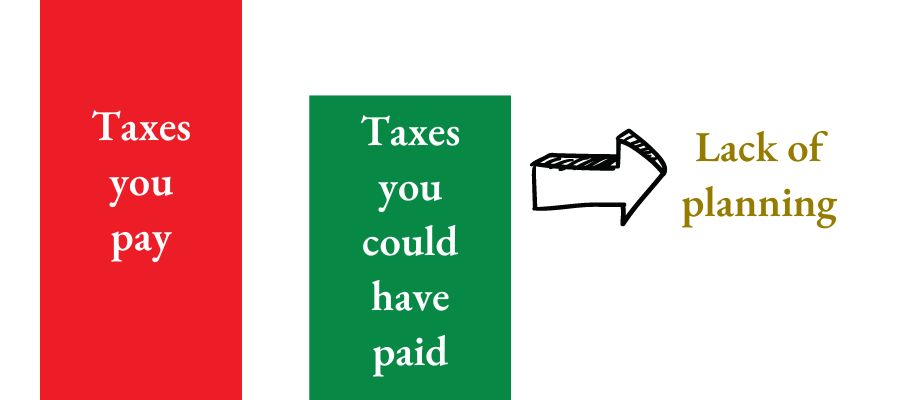
BANK ACCOUNTS AND DEPOSITS
Here are examples of a few:
GENERAL INVESTMENT ACCOUNTS, ISA’S, BROKERAGE ACCOUNTS, PLATFORMS, DISCRETIONARY MANAGED PORTFOLIO, DIRECT INVESTMENT IN FUNDS, STOCKS AND SHARES, COMMODITIES, ART WORK, CLASSIC CARS, ETC.
For all other financial assets we have the foreign-owned assets tax (IVAFE). The tax on these is 0.2% per annum based on the valuation as of 31st December each year.
2024 CHANGE: If the assets are located in one of tax regimes around the world which are considered fiscally privileged by the Italian authorities, then the rate of tax is 0.4%pa. The list can be found at the end of this article HERE

** Also worth mentioning is that if you are invested in NON-EU harmonised collective investment vehicles i.e. funds which are listed in a place outside the EU, then the gains and income from these assets is not taxed at the flat 26% rate in Italy, but would be added to the rest of your income for the year and taxed at your highest marginal rate of income tax. This is particularly important for UK and USA domiciled assets. If you have a brokerage account with a group such as Fidelity or Vanguard or one of the many other asset management firms, or you invest through a platform such as Hargreaves Lansdown in the UK/USA, then depending on which assets you invest in could mean you are pushing yourself into a higher tax bracket on taxable gains and income for the year. Your portfolio may need restructuring for life in Italy! **
If you have any questions about any of these taxes and how they apply to you and your financial situation, or if you think that you might be paying more than need to, then do get in touch and I will be happy to see if I can help you with your plans.
I can be contacted on email: gareth.horsfall@spectrum-ifa.com or on cell: +39 333 6492356







